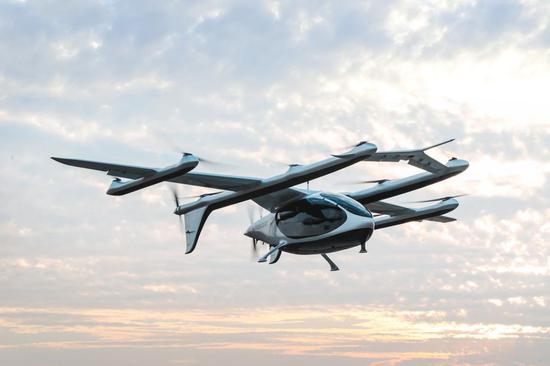
Prosperity also known as an "air taxi", is developed by AutoFlight, a leading eVTOL developer based in Shanghai. (Photo provided to chinadaily.com.cn)
Shanghai is planning to have at least 400 low-altitude flight routes by the end of 2027 to help achieve the city's ambition of building a "city of sky" featuring a complete low-altitude industry with its expected core industrial scale exceeding 50 billion yuan ($6.9 billion) by 2027.
The Shanghai Municipal Transportation Commission has unveiled an implementation plan for the high-quality development of the low-altitude industry in three phases.
"With details and specific targets, the plan has drawn a clear roadmap for the development of Shanghai's low-altitude economy and has striven to provide support in various ways for materializing these measures, which indicates that the development of Shanghai's low-altitude economy has entered into a stage of practical advancement," said Luo Jun, executive director of China Low Altitude Economic Alliance.
"Building air traffic command network and ground service infrastructures, as well as continuously improving air traffic regulations, standards, and service networks will lay a solid foundation for the comprehensive advancement of the city's low-altitude economy," Luo said.
Specifically, the plan has outlined three phases for developing the low-altitude economy in the East China cosmopolis — preparation phase, construction and trial operation phase, and optimization phase.
Preliminary work, including the construction of the low-altitude flight service center and the low-altitude flight supervision and service platform, will be carried out during the preparation stage that is scheduled to be completed before the end of this year.
In the construction and trial operation stage, the low-altitude aviation organization management system across the Yangtze River Delta region will be created by the end of 2025, and no less than 150 low-altitude flight routes will be built by that time.
The optimization and upgrade phase will be concluded by the end of 2027. By then, the low-altitude public air route network structure of Shanghai will take shape with at least 400 low-altitude flight routes planned and established.
The three-phase plan is expected to support the realization of an action plan on the high-quality development of the low-altitude economy between 2024 and 2027, which was unveiled by the municipal government of Shanghai in August.
Looking to build a low-altitude economy of innovation, commercial application, as well as operation services, Shanghai is set to form a complete industrial system covering research, development, design, assembly and manufacturing, airworthiness testing and commercial application of new low-altitude aircraft by 2027, according to the action plan.
At the forefront of the low-altitude economy innovation and development worldwide, Shanghai looks to expand the core industrial value of the sector to 50 billion yuan by 2027, the action plan said.
Shanghai's vision is backed by a series of policies by the central government to support the development of the low-altitude economy.
"With the rapid development of drones, the BeiDou navigation satellite system, 5G communication and artificial intelligence technologies, China's low-altitude economy has entered into a new phase of widespread application," said Xiang Jinwu, an academician at the Chinese Academy of Engineering.
Xiang made the remarks at the first edition of China's low-altitude economy expo held by the China Air Transport Association in Shaoxing, East China's Zhejiang province, from Saturday to Monday.
The size of China's low-altitude economy as of the end of last year was estimated at more than 500 billion yuan, with its scale expected to rise to 2 trillion yuan by 2030, Xinhua News Agency reported, citing the Civil Aviation Administration of China.
Low-altitude economy generally refers to the business created and related to aviation conducted below 1,000 meters.









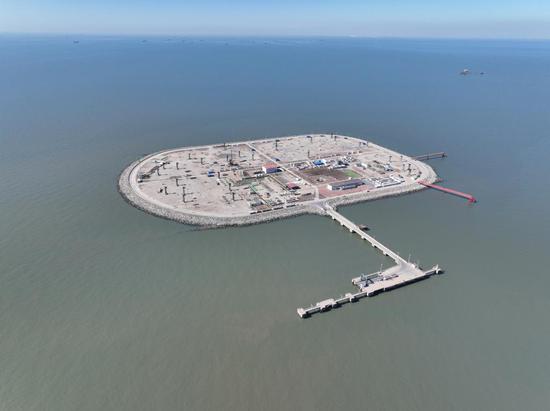

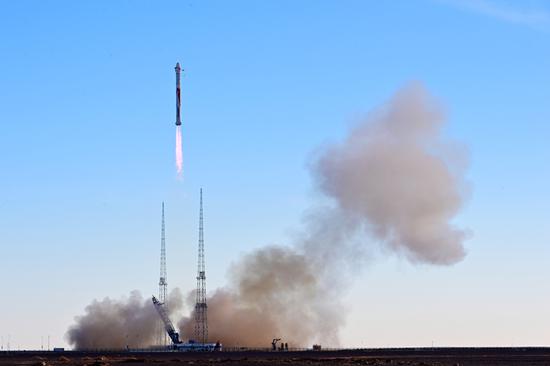
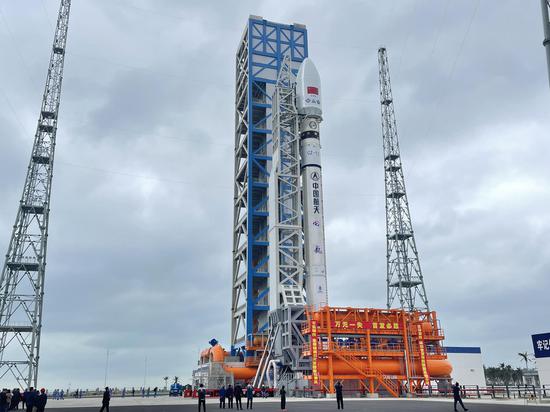


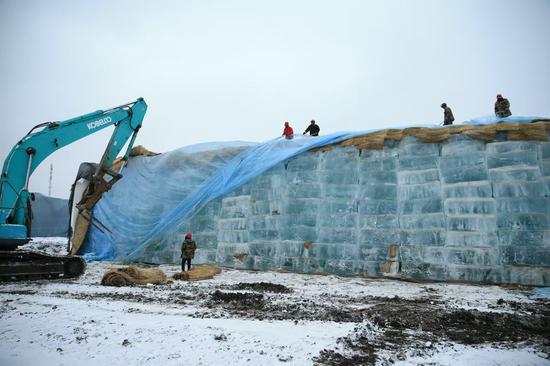
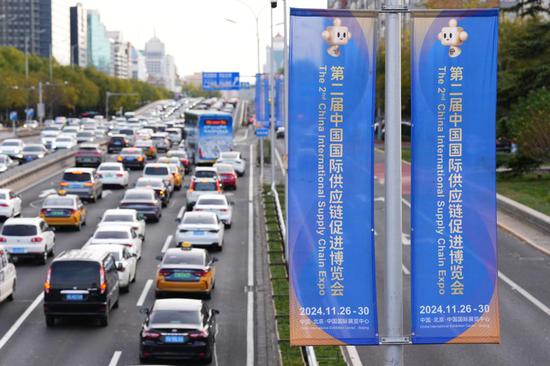




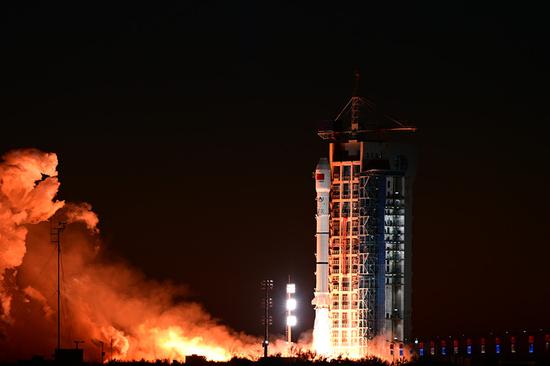




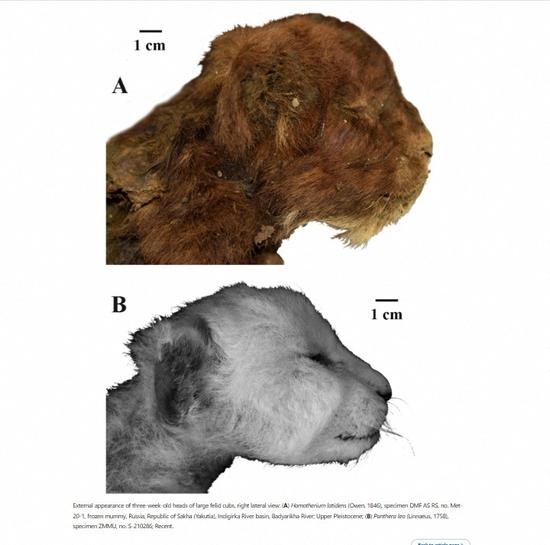








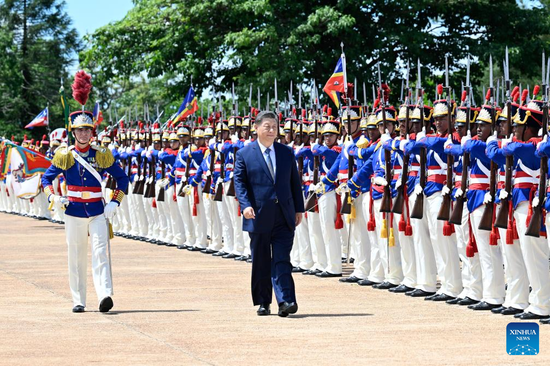





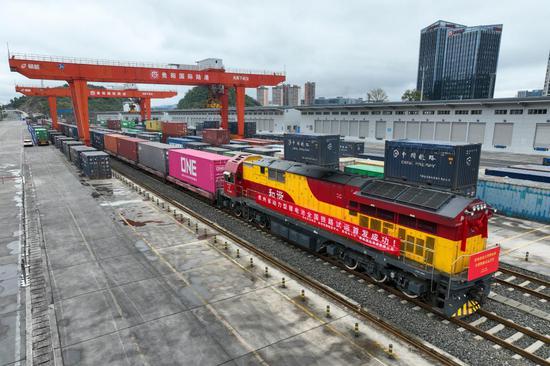
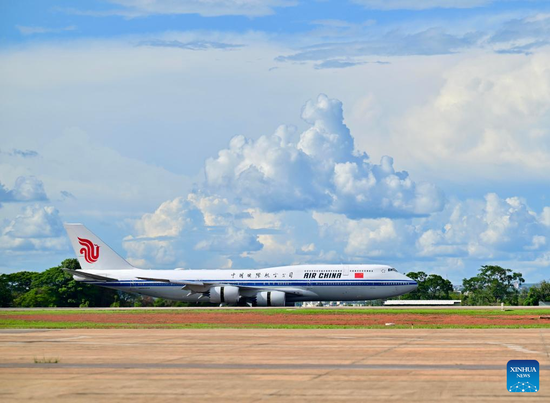



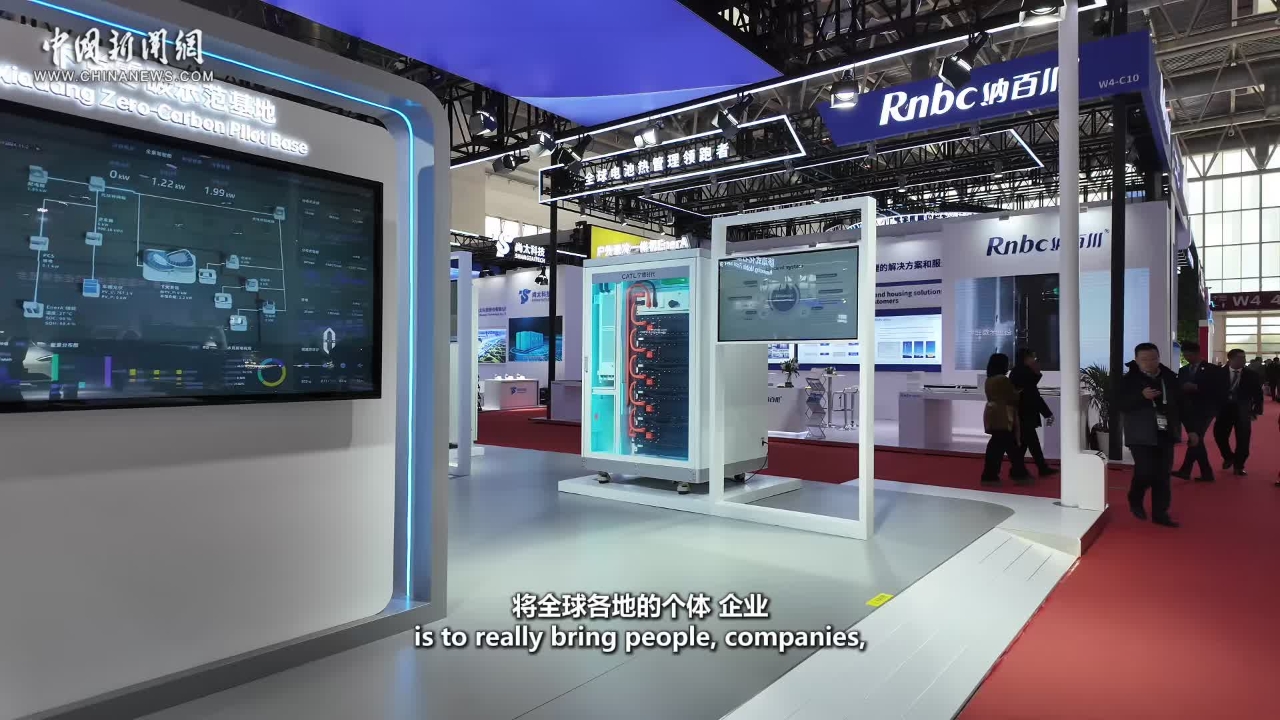



 京公网安备 11010202009201号
京公网安备 11010202009201号